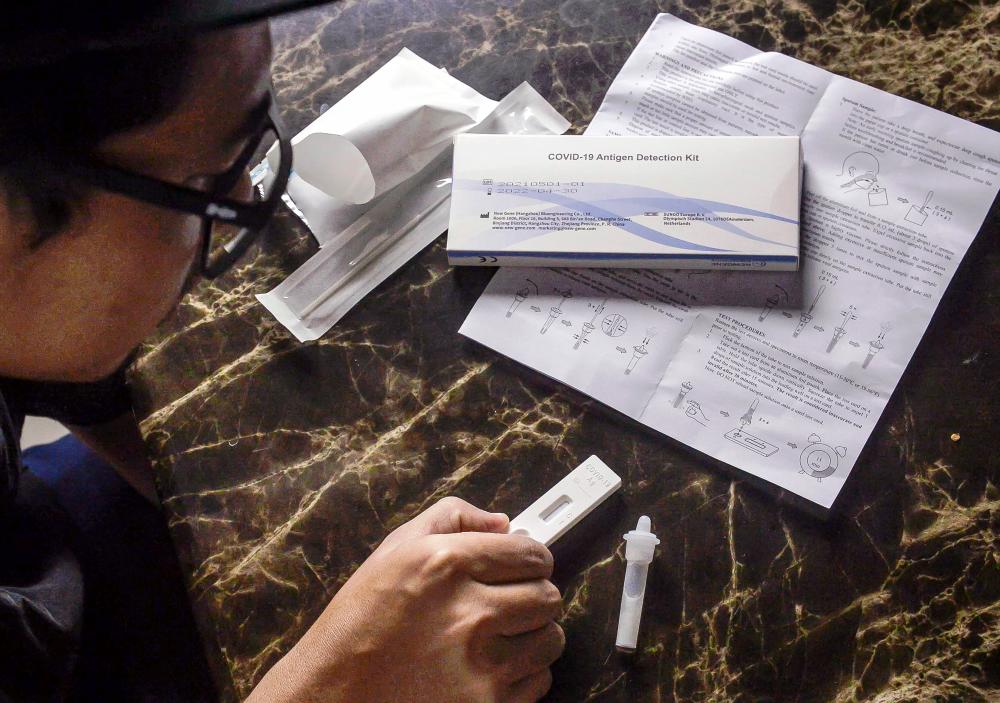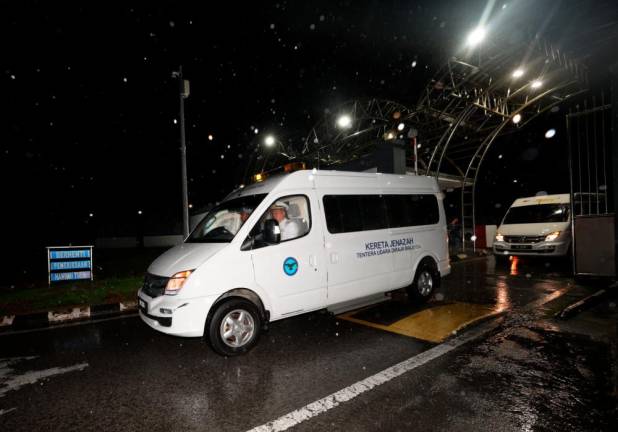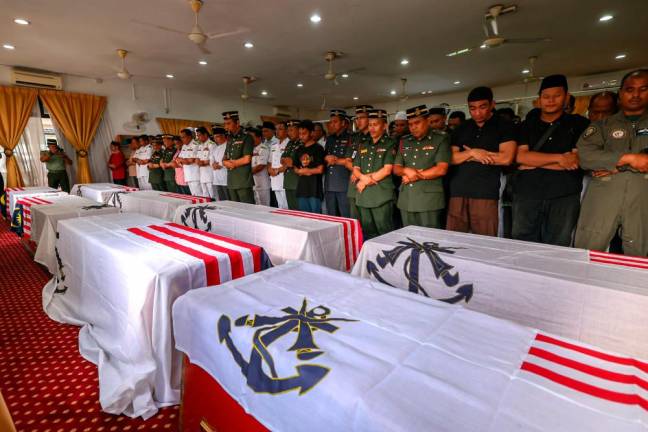PETALING JAYA: While most restrictions to curb the spread of Covid-19 have been eased, Malaysia is not out of the woods yet.
With more people returning to workplaces, the risk of being infected is heightened and close contact with a colleague who could have been infected should not be taken lightly.
Public health expert Dr Rusli Nordin said once a person has been in close contact with someone who is suspected to be infected, he should go for an antigen test (RTK-Ag) test.
“If the results are negative, the test should be repeated a week later. If the RTK-Ag test returns positive, the person should have a polymerase chain reaction (PCR) test at once,” he said.
“Even if the PCR test is negative, the person is not in the clear yet. He should repeat the test after a week,” Rusli told theSun.
If the PCR test results is positive, he should be quarantined for 10 days, at the end of which he has to repeat the test.
“If the second test is negative, he can return to work. But if it is positive again, he has to continue to be in quarantine and repeat the PCR test until it returns negative,” he added.
Rusli said the company should also take immediate steps to sanitise exposed areas at the workplace immediately.
Universiti Malaya head of social and preventive medicine Dr Victor Hoe said a worker who believes he has been exposed to an infected colleague should take the RTK-Ag self-test at day five of the last exposure if he does not show symptoms.
“It must be noted that all tests have their own sensitivity and specificity. To ensure accuracy, the instructions on the self-test kit should be followed to the letter,” he said.
“Anyone who tests positive should then confirm the diagnosis with a PCR test. The management should also be informed so that the proper procedures to keep others safe can be instituted.”
He said an infected person is most contagious two days before he tests positive if he does not show any symptoms. For others, the most infectious period is two days before the onset of symptoms.
Hoe added that the company should screen all employees who have had contact with the infected individual.
“The screening process should include a questionnaire to see if there was any significant exposure (such as) close contact for more than 15 minutes and at less than two metres apart from the infected person.”
Other risk factors to consider are eating together or chatting without face masks on.
Hoe said those who are at low-risk need not be quarantined but all workers should continue to monitor their well-being on a daily basis and if even the most minor symptoms show up, they should see a doctor immediately.
Places where infected workers have been should be wiped down with disinfectants of 10% bleach and 70% alcohol, and the area should be aired by leaving windows open.
Arena Middle East and Asia head of human resources Srithren Krishnan said at his company, employees who have to stay away from work will be placed on unrecorded leave.
“That means their annual leave and salary will not be deducted.”
However, he said they are required to take a PCR test at their own expense unless it is proven the infection was picked up at the workplace.
“The company will reject requests from infected individuals to continue working at the office, and those under quarantine will have to complete a PCR test before returning to work.”










